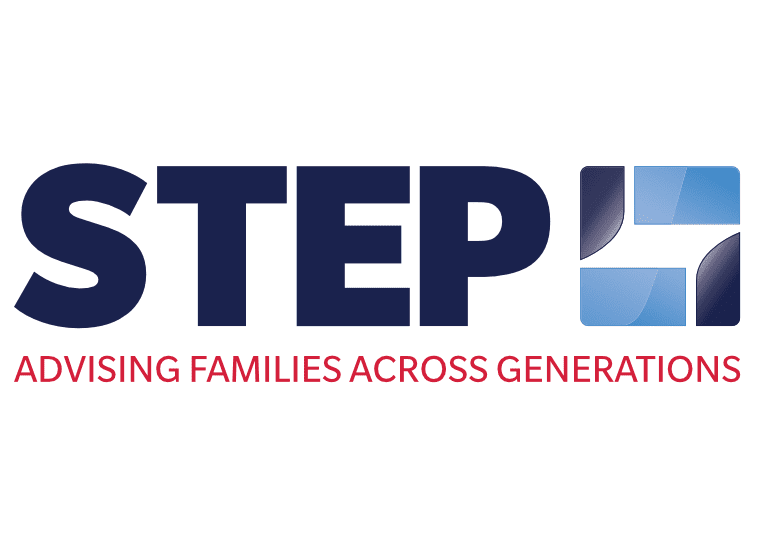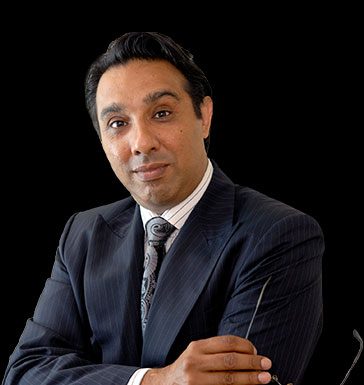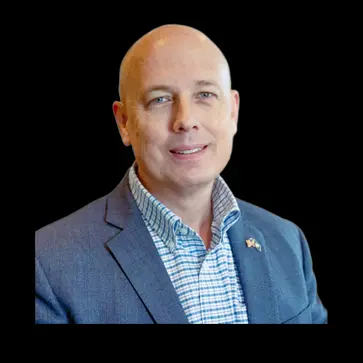Successful Estate Planning
Challenge Unfair Wills & Inheritances






Home » Estates & Wills 1
FINDING REAL STRESS FREE DETAILS & SOLUTIONS
Go Directly to our Specialist Family Law Information Pages Below
How to maximise our commercial and tax
knowledge for the best
financial settlements.
Estate and Will Planning
To be Effective, why Retaining a Holistic Law Firm is Critical!

We put a lot of effort into accomplishing this, understanding every aspect of your situation while considering the broadest possibilities for estate planning. Then, in order to carry out your intentions, we make use of our in-depth understanding of complex structures like trusts, business, family law, tax and other specialties.
The head of our practice area, Jaswinder( Jas) Sekhon, has been a full STEP member for 12 years and deals with estates, trusts, tax, asset protection and succession planning; more than 30 years in the industry; admitted as a practising lawyer in four countries.
HOW GOLDMAN LAW REMAINS UNIQUE?
Our Past Success Only Drives our Future Innovation

Expert Snr
Lawyers
Our team of Senior lawyers have 10 yrs+ minimum law expertise. We know what we are doing.

Quick Turnaround
Our expert support team ensures each Senior lawyer’s work load is efficient & commercial.

Our
Fees
We offer fixed fees, payment plans and transparent up-front full fees, cost estimates.

Commercial Resolution
Our expert Senior lawyers explore all commercial options. Court is a last resort when required.

Complex & Global
Our expert Senior lawyers relish what is complex to other law firms and love global matters.
OUR PAST AWARDS CANNOT GUARANTEE FUTURE SUCCESS
Compassion & Individual Lawyer's Commitments Must Remain Present



OUR THANKS TO OUR PAST CLIENTS
Read More About Their Experiences
Chel Chappy
I highly recommend Goldman Law.
Every contact I had with the firm was friendly, professional and understanding.
Jennifer is an outstanding lawyer. I had had a difficult ongoing children’s matter...

Quentin Carmont
A family law matter is never pretty emotions are running hot, everyone thinks they’re right when in reality no one is.
Goldman made the process very easy for me to choose them.
Initial contact with Kim and then a small consultation with Jass there senior lawyer...

Paul Northrop
I have used G&C on numerous occasions for business matters. I have always found them to be incredibly responsive with sound advice. I know that with the G&C team working on my legal matters, it takes the pressure off me and allows me to concentrate on running my business!
Pauline Von Czapiewski
Wonderful team of professionals to deal with from office support to solicitors. Always has a quick response time, and good advice. Incredibly impressed and will be sure to use again in the future...
Jane Mac
I have found Goldman’s to be a highly skilled and caring group of lawyers who have guided me many times during periods of uncertainty and stress. I couldn’t do without their considered and professional advice for our businesses.
Talia Falo
Goldman & Co handled my case extremely well, gave fantastic advice and overall eased up the tension of the entire situation immensely. I felt they genuinely cared for my well-being and what I am going through so great thanks to them. Would highly recommend...
Contact Our Senior People
RISK FREE NO OBLIGATION STRATEGY DISCUSSION

- Mr. Jaswinder Sekhon<br /><span>Director & Principal**</span>Jaswinder strives to simplify and demystify complex legal matters, to explain them logically and without "jargon" He resolves and commits to the best possible commercial outcomes for his clients.
- Mr. Gidon Sattinger<br /><span>Strategy</span>Gidon Sattinger is the founder, Director and CEO of Vintech Systems, a private company with a multimillion dollar turnover. Vintech Systems is the exclusive distributor that imports, installs and services
- Mr. Adrian J Compton<br /><span>Finance & Compliance </span>Adrian is one of the firms co founder’s and has arranged for the stepped equity investment into the firms IP and the digital platforms for execution (of the legal services new age model).
- Mr. Mohammed Fawzy<br /><span>UAE General Counsel**</span>Senior General counsel. Over 10 years of experience in the UAE in dealing with all Government departments, provides a variety of corporate and legal services, company formation, corporate contracts, dispute resolution and arbitration issues.
- Mr. Ed Rogers<br /><span>Trusts, Tax & Wealth**</span>Ed Rogers TEP is a British citizen who is tax resident in the Isle of Man. He is the CEO of the Professional Protector Group (PPG) and he has 35 years of trust business experience gained in multiple jurisdictions across the world.
- Mr. David Hill<br /><span>Trusts, Tax & Wealth**</span>Dr. David Logan Hill JD, LLM, TEP is a US citizen, currently living in Switzerland. David is a senior lawyer with more than 25 years of international trust and tax planning experience. David is the owner of a professional trustee company and he is also the sole owner of Protector Group (USA) LLC, which delivers
- Mr. Andrea Bartoli<br /><span>Trusts, Tax & Wealth**</span>Andrea is an Italian citizen who is tax resident in Hong Kong, He is the owner of a licensed trust and corporate services provider company in Hong Kong. Andrea also delivers tax-efficient solutions to his international clients and he is currently studying for the CPA qualification
- Ms. Svetla Pencheva<br /><span>Trusts & Wealth**</span>Svetla is a Bulgarian citizen and resides in the Netherlands. She has over 15 years of professional experience in international wealth and succession planning, legal corporate environment and fiduciary services, implementation of investment structures and tax planning.
- Ms. Helena J. Duckham<br /><span>Family & Disputes**</span>Helena Duckham graduated her law degree with honours. She has a Master of Law in applied family law, including binding financial agreements, and a Graduate Diploma in Family Dispute Resolution. Helena works exclusively in family law, and she is experienced in negotiating outcomes using a mediation mindset and focuses on finding sturdy resolutions for families.
- Mr. Mathew Nott<br /><span>Criminal & Disputes**</span>Mathew joined Goldman and Co Lawyers as a solicitor in 2020. He was admitted to the Supreme Court of NSW in 2017. His focus is criminal law and ensuring our clients get the best defence when facing criminal charges.
- Ms. Zeinab Elzein<br /><span>Family & Disputes**</span>Zee is an experienced family lawyer. Her experience ranges from complex property settlement litigation matters to contested children matters, including relocation matters
- Mr. David Russell K. C.<br /><span>Senior Counsel (KC) </span>David is an outstanding lawyer with an enormous reputation that goes beyond national boundaries. As such, he is very well connected within the international legal community. When working together on an assignment, David always manages to make sure matters are viewed from various perspectives.
- Ekta Jhanjhri<br /><span>Commercial & Disputes**</span>Ekta is a law graduate from the Institute of Law, Nirma University, India. She completed her graduation in 2021 and has an excellent academic record. Her enthusiasm and inquisitiveness have led her to progress .
- Gargi Pareek<br /><span>Medical & Disputes </span>Lorem Ipsum is simply dummy text of the printing and typesetting industry. Lorem Ipsum has been the industry's standard dummy text ever since the 1500s, when an unknown printer took a galley of type and scrambled it to make a type specimen book. It has survived not only five centuries, but also the leap into electronic typesetting, remaining essentially unchanged.
- Rutuja Naik<br /><span>Corporate & Disputes </span>Lorem Ipsum is simply dummy text of the printing and typesetting industry. Lorem Ipsum has been the industry's standard dummy text ever since the 1500s, when an unknown printer took a galley of type and scrambled it to make a type specimen book. It has survived not only five centuries, but also the leap into electronic typesetting, remaining essentially unchanged.
- Ram Sethi<br /><span>Director: Cyber &</span>Lorem Ipsum is simply dummy text of the printing and typesetting industry. Lorem Ipsum has been the industry's standard dummy text ever since the 1500s, when an unknown printer took a galley of type and scrambled it to make a type specimen book. It has survived not only five centuries, but also the leap into electronic typesetting, remaining essentially unchanged.
- Kerry Turner <br /><span>PR VIP Projects </span>Lorem Ipsum is simply dummy text of the printing and typesetting industry. Lorem Ipsum has been the industry's standard dummy text ever since the 1500s, when an unknown printer took a galley of type and scrambled it to make a type specimen book. It has survived not only five centuries, but also the leap into electronic typesetting, remaining essentially unchanged.
- Mr Chandra Shekhar<br /><span>Director IT & e-Law </span>Ekta is a law graduate from the Institute of Law, Nirma University, India. She completed her graduation in 2021 and has an excellent academic record. Her enthusiasm and inquisitiveness have led her to progress .
- Mr. Argie Jabanes <br /><span>General & Finance</span>Lorem Ipsum is simply dummy text of the printing and typesetting industry. Lorem Ipsum has been the industry's standard dummy text ever since the 1500s, when an unknown printer took a galley of type and scrambled it to make a type specimen book. It has survived not only five centuries, but also the leap into electronic typesetting, remaining essentially unchanged.
- Jubilee Ramos<br /><span>Systems & Finance </span>Lorem Ipsum is simply dummy text of the printing and typesetting industry. Lorem Ipsum has been the industry's standard dummy text ever since the 1500s, when an unknown printer took a galley of type and scrambled it to make...
- Mr M. Ali<br /><span>Corporate & Commercial</span>Lorem Ipsum is simply dummy text of the printing and typesetting industry. Lorem Ipsum has been the industry's standard dummy text ever since the 1500s, when an unknown printer took a galley of type and scrambled it to make a type specimen book. It has survived not only five centuries, but also the leap into electronic typesetting, remaining essentially unchanged.

Zeinab Elzein
A senior family lawyer and General Counsel
10 years +++

Mathew Nott
A senior lawyer also specialising
in domestic violence.
in domestic violence.

Kerry Turner
Clients and
workflows
15 years +++
workflows
Your first contact point for everything about us and our lawyers . Kerry is unmatched in her gentle handling and real life knowledge. She controls our lawyers. Compassion, integrity with practical reality.
Wills and Inheritances Expertise
Challenge Unfair Wills & Inheritances
Our Expertise in Wills and Estates includes not only planning but challenging in Court unfair wills and inheritances.
- Challenging Wills & Inheritances
- Enduring Power of Attorney
- Enduring Guardianship
- Discretionary Testamentary Trusts
- Disability Trusts & Elder Law
- Probate and Estate Administration
- Guardianship Board Applications
- Cross border Estates and Assets

READ OUR Criminal Law NEWS & OUR ARTICLES
Some Extracts From Our Media and Community Pages

Elimination of cosmetic surgery medical services for Australian's unju
Australian Medical Board new guidelines are sending Australians overseas for affordable cosmetic surgery procedures. Out of touch of touch with public demand. Sekhon said the guidelines would significantly impact health pract
Read time : 2 minutes, 40 seconds

Goldman Law Expands Presence & Private Client Services across Australi
In addition to the expansion in Perth Australia, Goldman Law is to consolidate its new offices with expanded operations in Auckland and London this year. What distinguishes Goldman Law is our leading expertise in Family law, trusts, estates and wills, complex
Read time : 2 minutes, 17 seconds

DIY Divorce & Separation
Guided Self Help Six Easy Steps To DIY Divorce Keywords: Family Law, Divorce, Divorce in Australia, Divorce Australia DYI | Divorce Separation | Divorce Separation Agreement | Self-Help | legal costs | Lawyers | Family Law | Family Court | Guided Self-Help
Read time : 9 minutes, 22 seconds
Innovative & Simple estate plan solutions
Start with a Will and Testamentary Trust
Protect Your Family's Inheritance From Disgruntled Family Members
- Help your blended family provide benefits to both sides of the family
- Prepare Wills and estate plans that help you deal with any assets you hold outside of Australia.
- Advise on using trusts, companies and other structures so that your estate isn’t subject to unnecessary taxes.
- Powers of attorney, enduring guardian appointments, advanced healthcare directives and other devices .
- Superannuation and plan for making sure your super goes where you intend.

Experience & Trust
With deep local and international expertise for over 30 years.
Growing and protecting successful individuals, family offices and business.
Experience & trust built through sheer hard work
WHEN YOU NEED MORE DETAILS
From Real Family Law FFAQ's (Further Frequently Asked Questions)
Anyone over the age of 18 who is married or considering getting married and has testamentary capacity may make a will. With the court’s approval, unmarried people under the age of 18 may draft a will. This is especially advised for young people who earn a lot of money through modelling, show business, sports, or endorsements for businesses.
The Court may also grant a will to someone who lacks testamentary capacity in accordance with Part 2.2 of the Succession Act.
Should I contact the attorney to inquire about the suitability of the intended testator?
Many people with testamentary capacity have granted an enduring power of attorney, so this fact alone shouldn’t be used to cast doubt on the intended testator’s ability to make a testament. Depending on the circumstances of the intended patient, such as whether they are in a nursing home, hospital, etc., it would be wise to first speak with the testator’s treating physician or hospital superintendent to determine whether the client has any type of dementia or has different lucidity periods.
There isn’t a public will registry in NSW, but several private businesses provide will registration services, such as Goldman Lawyers.
- Wills made when the client is seriously ill are especially vulnerable to challenge due to a lack of testamentary capacity. There are some actions you can take to give your will the best chance of overcoming such a challenge:
- Ask the testator directly for the will instructions; if necessary, he or she should be accompanied by a qualified non-family member interpreter.
- To test the client’s testamentary capacity, ask open-ended questions. A good place to start is with the sample questions provided by Kunc J in Ryan v. Dalton in 2017 [ NSWSC 1007 at] 107:
- Who are the members of your family?
- What do you have to offer?
- Whom would you like to leave your assets to?
- Why did you decide to proceed in that manner?
- Make a file note of the inquiries and responses.
- Determine whether any diagnosis, medication, or behaviour may suggest there is cause to be concerned about capacity, if at all possible. Take file notes once more.
- If you can, ask the client’s doctor for advice on testamentary capacity; however, if the situation is critical, make the will right away.
Creating a new will
- If the client does not already have a will or if you do not have copies of their current will, you will need to draft rewriting it. A new will might be the best choice even if you already have a copy of the current one and there are significant changes that need to be made.
Modifying a current will
- Making changes to the existing will is an option if we already have the client’s current will and the changes you need to make are minor. The alterations must be signed by the testator and attested by two witnesses in accordance with section 6 of the Succession Act 2006 (NSW) (“Succession Act”) for formal validity. In anticipation of an application under section 8 of the Succession Act, have the alteration signed by the testator and one witness if a second witness is not available. The date on which the changes are made should be noted.
Codicil
- Making a codicil is another choice if we have the client’s current will. Make sure that any codicil is written clearly, especially in relation to the portions of the will that are revoked and confirmed, so that when the two are read together, they make sense. A codicil should be executed similarly to a will, but if only one witness is present, an application may be made using the dispensing authority set forth in section 8 of the Succession Act.
- With the Will Annexed, one of the beneficiaries—typically a major beneficiary—can apply for Letters of Administration. When that application is approved, the applicant assumes the role of Estate Administrator, with all the responsibilities, rights, and powers of an executor to carry out the deceased’s wishes as specified in his or her will.
What if the will’s designated executor is a minor?
- His or her guardian may receive a limited grant of administration, which will expire when the executor turns 18 years old. The executor can then obtain a grant to finish managing the estate.
- What happens if there are two executors who refuse to cooperate in order to obtain a grant of probate?
- If the executors choose to accept their appointment, their responsibility is to obtain a probate and carry out their duty of care for the beneficiaries. If a disagreement between executors is delaying the application for probate, one of them should inform the other that they intend to do so and invite the opposing administrator to join the process, preferably with the counsel of sane counsel. If the other executor doesn’t respond within the allotted time, the first executor may proceed to file a petition for probate on their own, with permission reserved for the second executor to appear and establish the will.
Before the deceased’s assets can be dealt with does a will need to be granted Probate or Letters of Administration?
- Depending on the type of assets, yes. If the estate is small and the assets include, say, a small bank, credit union, or building society account, these can typically be handled by producing the will to the bank or financial institution, along with the necessary documents for the executor’s identity, the completion of the withdrawal form, and an indemnity in the format required by the institution. In this situation, the executor is personally liable to the beneficiaries for the payment of their entitlements as well as the deceased person’s funeral costs and debts up to and including the value of the estate.
- Payment may be made to the next of kin in cases where there is no will, subject to production of the death certificate, the completed withdrawal form and indemnity as described above, as well as proof of their identity, and they will then be responsible for paying and distributing the money to those who are entitled.
- The person dealing with assets is unable to obtain protection from liability for claims through the publication of statutory notices, which is one drawback of proceeding without a grant of probate or letters of administration. Referring a small estate to the New South Wales Trustee and Guardian, who has additional authority to handle such estates, includes submitting an election to administer the estate, which comes with all the protections of an administration or grant of probate.
When should a request for probation be made?
- According to the Probate Rules, a request for probate must be submitted within six or six months of the testator’s passing. If the application is not submitted within that time frame, the justifications for the delay must be provided in the form of an affidavit, either in its entirety or as part of the executor’s application.
Are the costs associated with probate regulated?
- Up until the grant is delivered by the court, the costs of the legal work involved in obtaining the Probate or Letters of Administration are set at the maximum amount that may be charged. Costs associated with estate administration are deregulated. Before beginning the retainer, practitioners must disclose to their clients their fees, including GST, for work in estates, regardless of whether costs are regulated or not. However, keep in mind that the disclosure requirements do not apply when the total legal costs, excluding disbursements, are not likely to exceed $750 or any other higher amount specified by the regulations.
- One of the two executors I am representing wants to apply for a commission. Can this be accomplished through a court order or an agreement?
- If all of the beneficiaries are sui juris (have legal capacity), they can agree on the amount of commission payment; otherwise, an application for a court order to pay commission must be made at the time the estate accounts are filed and approved.
- According to a Supreme Court ruling in Buckley and Others v. Permanent Trustee Co Ltd (1990) 21 NSWLR 112, if the co-executor had taken part in carrying out the executorial duties, the trustee company may be liable to have its normal rate of commission reduced.
Attorney’s Power- In NSW, is a power of attorney subject to stamp duty?
- No.
Does the Attorney need to register a Power of Attorney before he can sign the contract?
No . However, before dealings involving land, like a Transfer, are signed, it must be listed in the General Registry of Deeds.
Should I give my client’s lawyer a copy of his will?
- A solicitor is not permitted to give the attorney a copy of the will without the client’s consent.
- According to Section 22 of the Powers of Attorney Act, anyone named as the beneficiary of a particular item that is sold, mortgaged, charged, or disposed of by someone acting as an attorney has the same interest in any surplus funds or other estate property as if there had been no such transaction. Therefore, it is wise to inform the attorney if they plan to deal with the principal’s property as the beneficiary of a specific bequest.

































